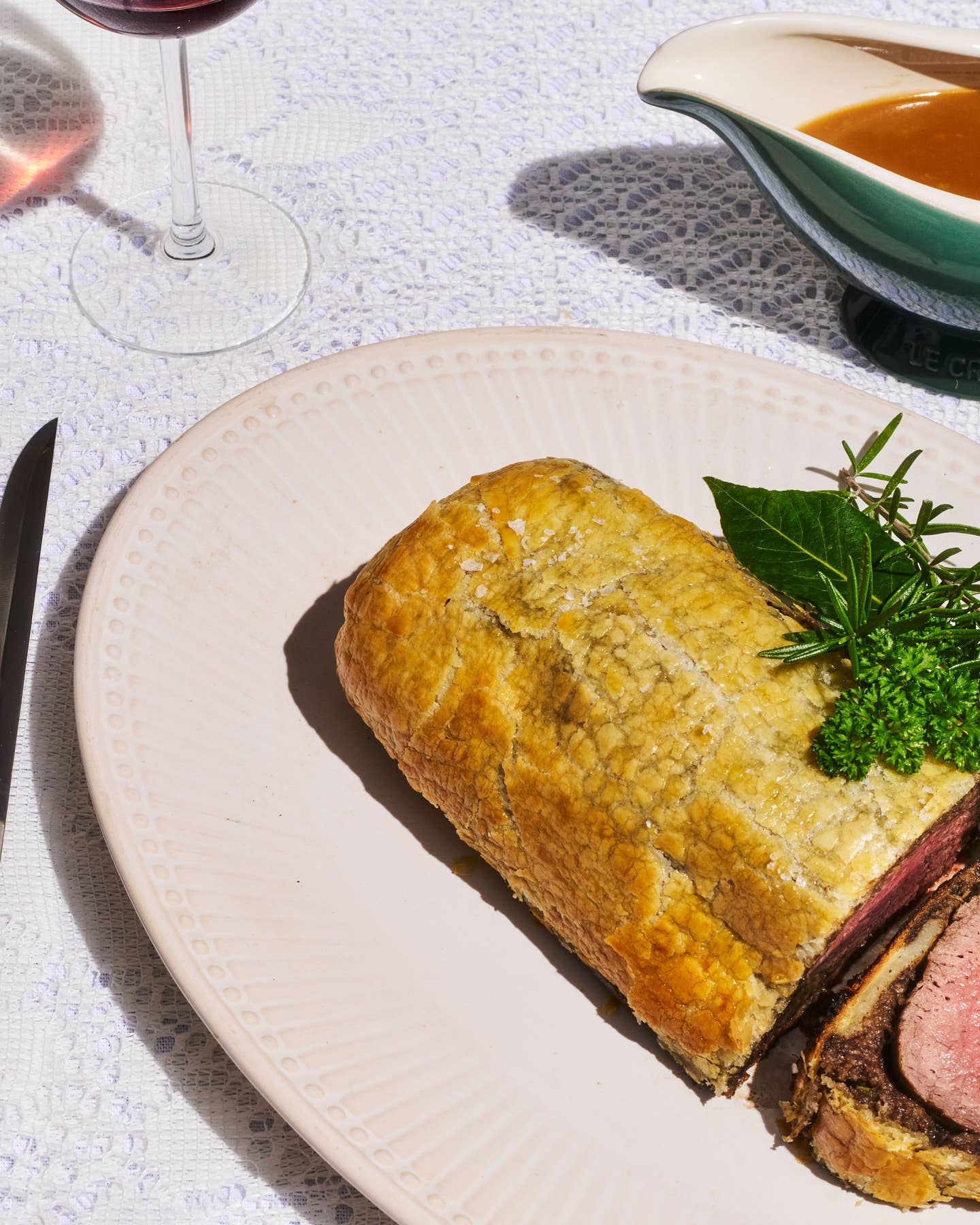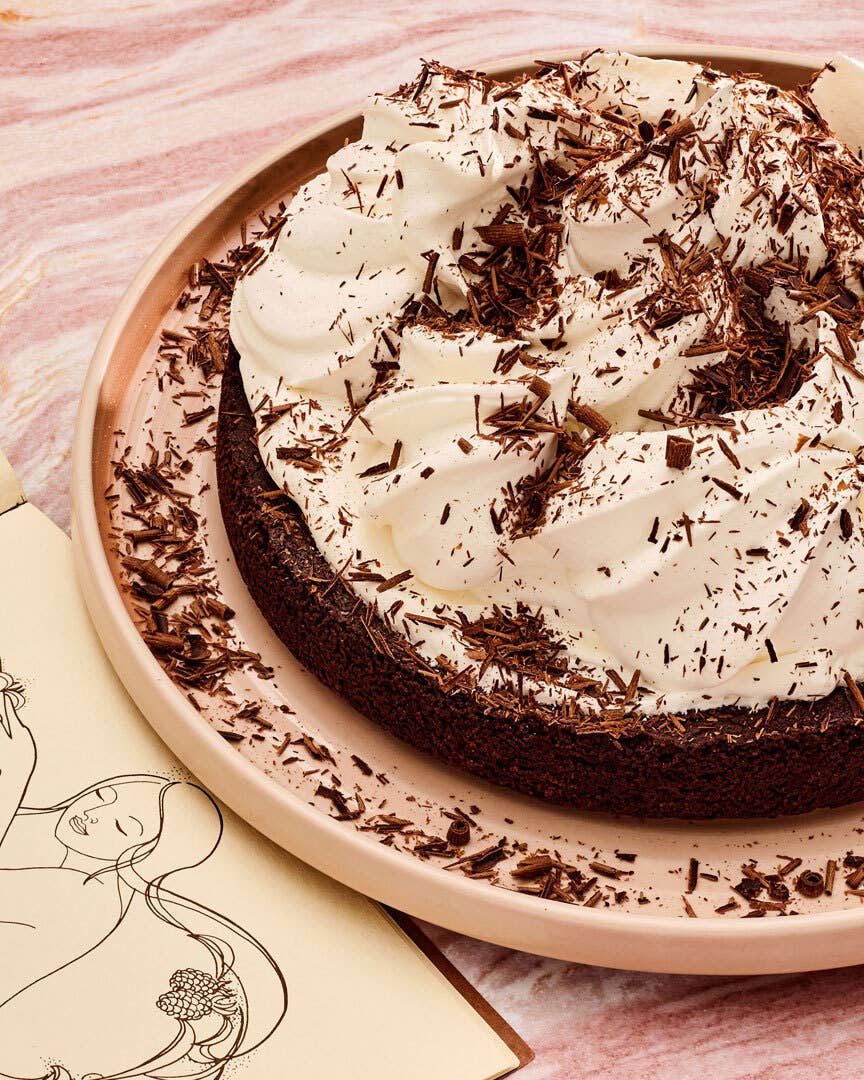
These 4 Indigenous Chefs Are Bringing Native Foods To The Table
“We can tell a story on a plate,” says Crystal Wahpepah.
Pick up an ingredient in your kitchen, and there’s a pretty good chance it is native to the Western Hemisphere. Avocados, squash, corn, and potatoes are just some of the Indigenous foods that have been cultivated in the Americas by Native communities over centuries, and have become staples of nutrition around the world.
Though these ingredients are living pieces of American agricultural history, the culinary world rarely acknowledges their Native origins. And many other foods still enjoyed in Native American communities—including bison, blue corn, huckleberries, and acorn, to name a few—have been largely forgotten in the broader American diet due to colonization and industrial agriculture.
Not only is the survival of these food sources essential for preserving Native culture and traditions, it also has significant environmental implications: plants that are indigenous to a place are naturally hardier and more weather- and pest-resistant than their non-native counterparts. And promoting food sovereignty can empower people, from growers and harvesters to cooks and chefs, to continue to sustain these ingredients.
Today, Native American restaurants in the U.S. where Indigenous chefs are the ones spotlighting these ingredients are still rare. But a community of Native chefs across the country is working to change that—through dining experiences that uplift their heritage ingredients, support the people who grow them, and proudly celebrate Native culinary traditions. These historians and educators are inviting diners to learn about the ways in which Native foods are tied to American history and soil, and to make room on their tables for these ingredients, both the ones they already know and the ones that aren’t yet familiar to them.
Meet a few of the Indigenous chefs who are reacquainting diners with Native foods.
Crystal Wahpepah

After several years in the catering industry, chef Crystal Wahpepah, a member of the Kickapoo Nation, opened the restaurant Wahpepah’s Kitchen in Oakland, California. “It’s always been a dream of mine—having a Native restaurant,” she says.
To educate diners about foods indigenous to the area, the 2022 James Beard Award Semifinalist for Emerging Chef works closely with Native producers and, based on what their gardens are producing, incorporates the ingredients into her menu. The Native pillar of “cooking in season based on what you have available,” she explains, is an ethos she hopes her food will inspire more people to adopt. “We flow in seasons for a reason.”
Wahpepah is particularly proud of a veggie bowl on her menu that pays homage to the three sisters, which refers to an intercropping method practiced by Indigenous peoples in North America that involves cultivating corn, beans, and squash in a symbiotic arrangement. The dish features Kickapoo white corn that originates from Kansas, Hubbard squash that represents her tribe, and heirloom beans from the Pima-Maricopa Nation. “I feel that we can tell a story on a plate,” she says.
Wahpepah is optimistic that the industry is headed in a positive direction of better acknowledging the culture and history behind different ingredients. Restaurant owners and chefs, she believes, are increasingly asking themselves “where our foods come from, what we represent, how we want to feed our communities,” she says. “What I’m seeing? We’re in this beautiful change.”
Pyet Despain

When Prairie Band Potawatomi and Mexican American private chef Pyet Despain began digging into the foodways of her Indigenous heritage and incorporating them more into her cooking, it dawned on her the extent to which most Americans are unacquainted with traditional Native foods, such as amaranth and cactus. “Realizing the evolution of Indigenous food because of colonization was kind of heartbreaking,” says Despain. “A lot of the recipes and a lot of the food that my ancestors ate and the original people of this country ate were entirely forgotten.”
By interpreting Native ingredients using modern techniques, Despain, who was the first winner of Gordon Ramsay's TV show Next Level Chef, wants diners “not to look at our food as a past tense.” She regularly marries Indigenous foodways with cooking styles and techniques from her Mexican heritage to illustrate the versatility and vibrance of Native ingredients, while simultaneously honoring both of her heritages.
For Despain, who is now based in Los Angeles, being a private chef also facilitates a dialogue with diners that cooking in a restaurant doesn’t provide. “I love being able to have that person-to-person connection and be able to express fully my love for the food,” she says. And by seeing firsthand how she prepares certain ingredients, her clients may be inspired to cook those foods for themselves. “I want them to be able to implement these traditions into their own family,” she says, “regardless of their cultural background or their upbringing.”
Freddie Bitsoie

Diné chef Freddie Bitsoie, who wrote the cookbook New Native Kitchens, is on a quest to improve food sovereignty around Native foods, beginning with education. The owner of FJBits Concepts, a New Mexico-based firm focused on promoting Native American foodways, Bitsoie wants people to know not only what foods are indigenous to North America, but also who grows and harvests these ingredients and what techniques and methods are involved in cultivating them. According to Bitsoie, “It's important because it has a lot to do with pride in one's own culture, pride in one's own land,” and eaters have a shared responsibility to uplift the foods that naturally grow on this soil.
Modern education, however, often misrepresents the history of the country’s foodways. To illustrate this, Bitsoie often turns to the potato. “It really came from South America,” he says, explaining that the tuber eventually made its way to Europe through Atlantic trade routes before being brought over to the United States by Irish immigrants. “We tend to not think that it’s indigenous to the Western Hemisphere because we’re told that it’s from Ireland.” Explaining the true roots of America’s potatoes is one way Bitsoie hopes to “bring a more eye-opening thought process to how Indigenous foods are really taken for granted.”
Elena Terry

Chef Elena Terry, a member of Ho-Chunk Nation, founded the community outreach catering organization Wild Bearies in Wisconsin to help people overcoming alcohol and drug abuse or emotional traumas find healing through cooking and sharing meals.
According to Terry, though “we have been trained to trust only the food that we purchase off the shelf,” wild and cultivated ancestral foods have undeniable nutritional value. And as a seed-to-table chef who grows the ingredients she cooks, she believes the process of cultivating and harvesting food can be just as nourishing and healing as the ingredients themselves. ”Being out in the land or walking through the woods to forage,” she says, can foster a powerful connection with the natural environment.
“Our culture has suffered a lot of emotional trauma and it is intergenerational,” says Terry. By advocating for the power of growing and cooking food as an approach to recovery, she says she hopes to “show my children what healing looks like. It really is about the next generation.”
Keep Reading
Continue to Next Story










